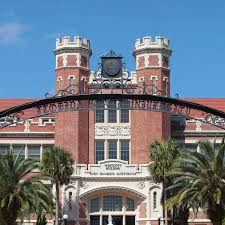Speaker
Description
Deconfined quarks and gluons are expected to be created in the relativistic heavy-ion collision. According to the coalescence model, yields of exotic hadrons are expected to be strongly affected by their structures [1]. Searching for exotic state particles and studying their properties can extend our understanding of quantum chromodynamics (QCD). The $f_{0}$(980) resonance is an exotic state decaying primarily into $\pi\pi$. Currently the structure and quark content of the $f_{0}$(980) is unknown with several predictions from theory being a $q\overline{q}$ state, a $qq\overline{q}\overline{q}$ state, a $K\overline{K}$ molecule state, or a gluonium state. We report the first $f_{0}$(980) elliptic flow ($v_{2}$) measurement from 200 GeV Au+Au collisions at STAR. The transverse momentum dependence of $v_{2}$ is examined and compared to those of other hadrons (baryons and mesons). The empirical number of constituent quark (NCQ) scaling is used to investigate the constituent quark content of $f_{0}$(980) [2], which may potentially address an important question in QCD. We will report our findings and discuss its implications.
[1] S. Cho, etal. (ExHIC Collaboration), Phys. Rev. Lett. 106, 212001 (2011)
[2] A. Gu, T. Edmonds, J. Zhao, F. Wang, Phys. Rev. C 101, 024908 (2020), arXiv:1902.07152
| speaker affiliation | Fudan University |
|---|

